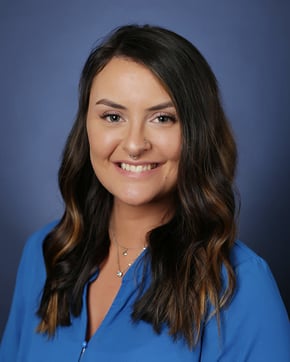Each April for Financial Capability Month, SAFE’s Financial Wellness team pushes into high gear to share financial insights with people of all ages and in all stages of their personal financial journeys.
It’s a month where we enthusiastically raise awareness of the importance of financial education and how it is an integral part of building financial freedom.
Let’s face it. Many of us have learned about money the hard way – getting too far in debt, not budgeting effectively so we end up with more months than money, spending too much on our wants rather than needs. It can leave us frustrated, feeling that money controls us, we don’t control our finances.
There’s a simple solution to this. Learning the basic principles of budgeting, saving, and how to wisely use credit reduces financial stress and will empower you to make better decisions.
SAFE’s financial education team works year-round giving free financial webinars and workshops, Budget Cents budgeting simulations at local high schools, and producing the Perfect Cents Podcast to share how to develop healthy financial habits.
According to the Financial Health Network, there are four components to building a financially healthy life: spend, borrow, save, and plan.
How SAFE gives back for Financial Capability Month
Spend
Spending money may seem like an easy enough concept; you go to the store and buy something. But the key is to understand your spending habits. Are you meeting your needs such as rent, car payment, utilities, before you splurge on a fun night out or a new TV?
Figuring out where you’re spending your money is the first step to gaining control. Take time to really look over your expenses and see which were “needs” and “wants.” If you find that you don’t have enough money to meet your needs, identify the unnecessary expenses you can reduce or drop altogether.
SAFE’s Financial Wellness Team can help you learn more through free webinars like “The Mindful Shopper,” where we dive into the psychology of spending, and “How to Be Mindful of Your Finances,” which covers how to start observing our habits, reflecting on them, and using mindfulness to improve our financial health.
Borrow
Understanding credit is crucial to maintaining your financial health. When you know how to use credit properly, you can avoid getting too deep in debt and overspending on interest. Knowing how credit scores work and ensuring you keep up with yours will help you in many ways, including applying for loans, an apartment, or even a job.
It’s pretty much impossible to not have to depend on credit. Many of us have school loans, car loans, and most people take out mortgages to buy homes. Learning how to manage this debt effectively can ensure you keep control of your monthly expenses and meet long-term financial goals.
Where some people get into trouble is with credit cards. It’s so easy to put everything on a credit card and figure you’ll pay it later. Ideally, you should pay off that balance every month. However, sometimes it doesn’t work out that way. If you do find yourself with a large amount of credit card debt, use one of several pay down methods to get it under control and to feel more financially confident.
Save
Building your savings needs to be a conscientious part of your personal financial plan. You can’t leave it up to chance that you will save whatever you have left at the end of the month. Instead, be sure to pay yourself first.
Set up an easy savings plan by directly depositing part of your paycheck into a savings account. Set up automatic transfers from a checking account to a savings account. Take advantage of your employer’s retirement savings plans.
Save now and your future self will thank you. Seventy-five percent of people believe they will live as comfortably as they do now in retirement, but only 25% of them have started saving to help them do so.
SAFE offers numerous resources to help get your savings muscles in shape. We regularly conduct webinars on savings practices. Set up an annual savings goal with the 52-Week Savings Challenge or learn how to save for a specific goal using the SMART method. The Zogo app– free for SAFE members – also has quality lessons on how to set savings goals.
Plan
Now that you have the basics of spending, borrowing, and saving down, it’s time to look at larger financial planning areas such as retirement, insurance, and estate planning.
SAFE partners with industry experts to give you the latest information on financial planning. We partner with the Law Offices of Ed Fong to provide free workshops on estate planning, and we partner with Good Shepard Insurance and Chris Frederick to explain Medicare and its options.
SAFE Credit Union is here to help you every step of the way in your financial journey. You can find Financial Capability Month-specific resources to help you build financial freedom.
Learn More
Stay tuned for new podcast episodes for Financial Capability Month.
Sign up for free webinars - Events & Webinars
Additional resources - FinLit Toolkit
Resources
https://www.dhs.gov/employee-resources/news/2023/04/05/national-financial-capability-month
https://nationaltoday.com/financial-literacy-month/
https://www.usnews.com/banking/articles/2025-financial-wellness-survey



